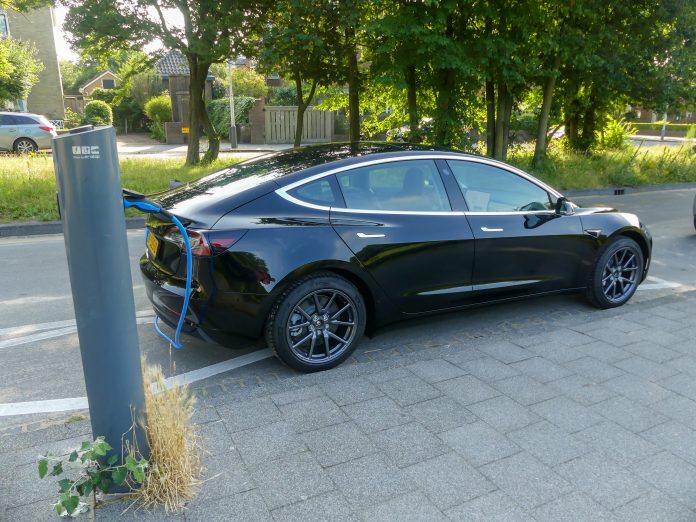Callum McPhillips, Content Writer for JLR Essex, comments on a significant aspect of transport policy in the UK, asking if the country is ready for the electric vehicle revolution
The UK Government has recently pushed forward the ban on the sale of new petrol and diesel vehicles from 2040 to 2035. This is due to experts proclaiming 2040 will be too late if the UK is to become virtually zero carbon by 2050.
This deadline may have been brought forward with positive intentions; however, it is now five years sooner than an already ambitious target.
Some obstacles in the way of this EV revolution are question marks over the reliability of electric vehicles, the infrastructure in place when it comes to public charging stations and a lack of incentives for drivers of electric vehicles.
For the UK Government to persuade drivers to make the switch to electric, more investment is needed, to convince the public the switch will be a worthwhile one. There also needs to be more incentives in place for EV’s, including the convenience of operating and charging electric vehicles.
Raise awareness over EV reliability
Public attitudes toward climate change appear to be changing, particularly in the UK. In the past five years, a high majority of Brits have altered their behaviour due to climate change. Many acknowledge changes need to be made to lower the country’s carbon footprint, yet are unconvinced over the reliability and efficiency of electric vehicles. This is mainly down to a lack of awareness of the benefits of owning an electric vehicle.
There has long been a stigma that electric vehicles are less reliable and efficient than petrol and diesel-powered vehicles. In fact, for the majority of UK drivers, electric vehicles should, in theory, be more efficient than petrol and diesel cars. EV’s are better suited to travelling short distances and stop-start driving in cities or suburbs. The average UK car trip is just 15 miles, and only 14% do a large proportion of driving on motorways. Both these figures suggest EV’s would be well suited to the majority of UK drivers, with today’s electric cars being able to travel 200 miles before requiring a recharge.
The UK Government must do more to educate UK drivers over the benefits of switching to an EV. A majority of Brits are unaware that, although initial costs are more expensive, electric vehicles are cheaper to refuel and maintain. Educating UK drivers about how switching to an EV will be a worthwhile investment will help to kickstart the transition to a greener future on the roads.
The UK Government: Charging up the electric vehicle revolution
On 21st January 2020, Transport Secretary Grant Shapps made known that government funding for the installation chargepoints on residential streets in 2021 will be doubled to £10 million.
This could fund up to another 3,600 chargepoints across the country and will make charging at home and overnight easier for those who don’t have an off-street parking space. Making charging an electric vehicle hassle-free is essential when it comes to the government’s ambition to phase out diesel and petrol cars.
Ensuring that charging an electric vehicle is a convenient and simple process is crucial to meeting the government’s ambitions of phasing out petrol and diesel cars. Commenting on this significant development in transport policy, the Transport Shapps said: “We want to make electric cars the new normal, and ensuring drivers have convenient places to charge is key to that.
“By doubling funding again for chargepoints on streets where people live and opening up data we are helping drivers easily locate and use affordable, reliable chargepoints whether at home or on the road.” (1)
In February 2020, we find out that local authorities can apply to become the UK’s first all-electric bus town and that the winning area will be funded by up to £50 million to help them achieve this ambition. The Transport Secretary comments: “Buses carry more people than any other form of public trans- port in the UK, and with 200 electric buses able to offset 3,700 diesel cars, it is clear they have a crucial role to play in bringing down emissions.” (2)
www.gov.uk/government/news/funding-for-on-street-charge- points-doubled-to-help-charge-up-elec www.gov.uk/government/news/britains-first-all-electric-bus-town- to-pave-the-way-for-green-communities-of-the-future
Investment in public charging points
More investment in public charging stations is needed to convince UK drivers to purchase an electric vehicle whether this comes from the government, car manufacturers or other third parties.
It is thought the UK will need to install 2,300 chargers every day until 2050, to hit climate change targets. This will cost approximately £286 billion. Bringing the deadline forward by five years will only increase the amount of investment needed.
Approximately one-third of homes in the UK don’t have access to a garage or driveway to store a charging point. This means a considerable investment is needed to install a sufficient number of charging stations across the UK.
Create more incentives for EV drivers
Having a sufficient number of public charging points is the bare minimum when it comes to persuade drivers to invest in EV’s. The government should take note of countries such as Norway and offer more incentives for drivers who own an electric vehicle.
Some of these subsidies include lower import taxes, lower road tax, free municipal parking in cities and access to use bus lanes. The main motive for drivers in the UK purchasing an electric vehicle is to be more environmentally friendly. In Norway, drivers invest in electric vehicles not just because they are more eco-conscious, but because they are more financially viable.
Norway’s plan for all new vehicles to be zero-emission by 2025 is 10 years sooner than the UK’s revised date. There are worries the UK’s date is overambitious, yet Norway seems right on track to achieve their target. This is due to Norway providing EV drivers with monetary benefits which make owning an electric vehicle the more attractive option.
References
https://www.openaccessgovernment.org/the-future-of-the-electric-car-industry-in-2020/80858/
https://www.jlressex.co.uk/is-the-uk-ready-for-electric-vehicles-info-graphic/











